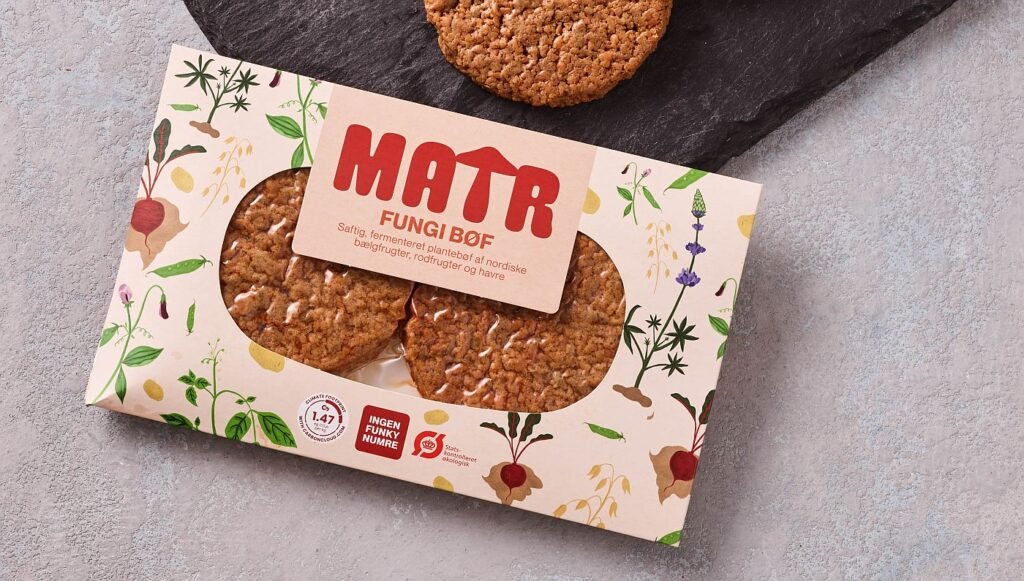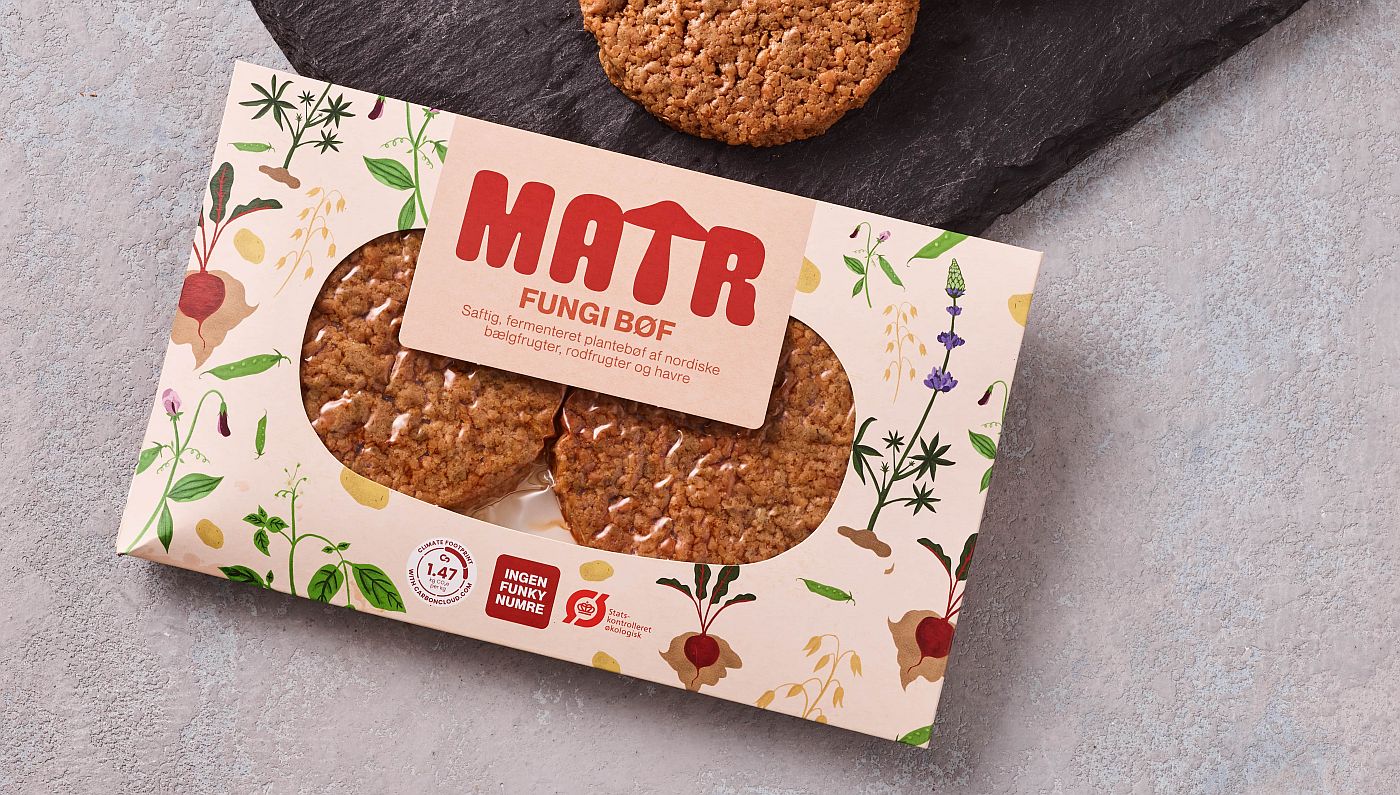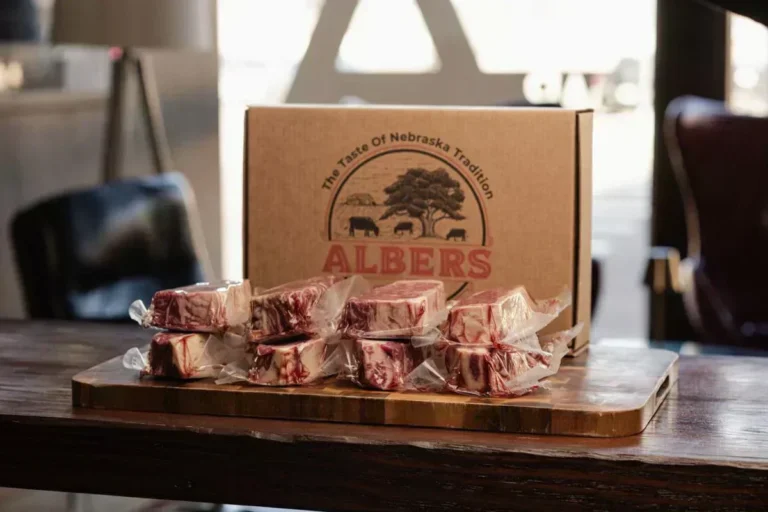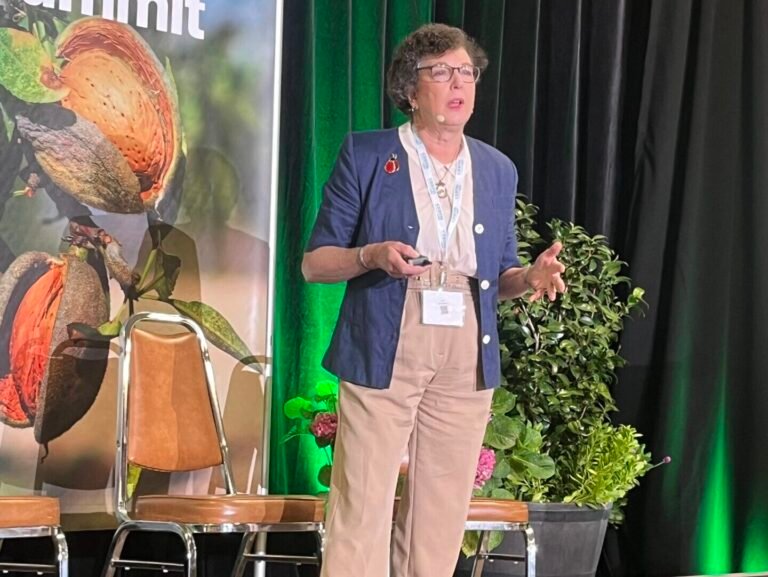
MATR Foods—a Danish startup making meat alternatives via solid state fermentation from legumes, vegetables and grains—has raised €40 million ($47 million) to scale up operations.
The cash injection, comprising €20 million equity from Novo Holdings and the Export and Investment Fund of Denmark, and a previously announced €20 million in debt from the European Investment Bank (EIB), will fund a 4,000-ton plant in Ansager, Jutland, that’s expected to come online in 2027.
MATR, which currently operates a pilot plant capable of producing 30 tons a year, inoculates “boiled and chopped” ingredients such as peas, lupins, beets, potatoes and oats with fungi spores. These increase protein levels, bind the ingredients together, and create savory, umami flavors.
It then marinates the harvested biomass in beet juice and seasonings to create products that are low in saturated fat and high in fiber, cofounder and CEO Randi Wahlsten told AgFunderNews. “The whole process takes less than a work week.
“The fermentation process creates both the juicy bouncy texture and the umami notes of the product. This means that we are not adding anything for texture nor flavor and we can keep sodium levels modest.
“In terms of nutrition, the fermentation reduces the carbohydrates [which the microbes eat] and elevates the protein and fiber content. From other studies we have seen that the fermentation increases bioavailability of proteins and minerals, although studies to this effect on our current product have not yet been completed.”

Lower-cost production process
Notably, the process is cheaper than submerged biomass fermentation or precision fermentation from a capex and opex perspective and does not require a lengthy regulatory approval process, she claimed.
“We are using a single [fungi] strain within a family that is approved for food use and is non-novel.
“The main equipment [required includes] solid state fermentation chambers and pre-processing equipment. Downstream we only have a marination and a heat step before packing. From the benchmarks we have seen in submerged biomass and precision [fermentation], I believe our technology is more cost efficient. We basically cut out the downstream formulation process, operate at lower temperatures and have no waste at all.”
Target markets: Germany, Switzerland, Denmark
She added: “The €20 million EIB funding announced last year is included in the €40 million we’re announcing today. That agreement was signed last year but conditioned on matching equity funding and is therefore now complete. The company’s total accumulated funding has surpassed €46 million ($53.6 million).”
MATR has “a number of customers ready to buy when we can supply,” she explained. “We are deliberately targeting a combination of retail and foodservice because we see a very positive spillover from restaurant and canteen experiences to retail interest.”
The target markets are Denmark, Germany, and Switzerland, she said.
“Germany and Switzerland have generally held a higher level of sales in the plant-based categories and not seen as much of a dip [as some other European markets such as the UK]. In general, we see a lot of consumers there who are very dedicated to change their diets or continue to live meat-free.
“But in all three markets we see a similar pattern of a lot of consumers having tried products in the category and not come back. That fundamentally tells me that many consumers want alternatives to meat but they haven’t been satisfied with the solutions they have had so far. We believe we can satisfy much of that demand.”
‘We are not trying to mimic meat’
As for market positioning and messaging, she said, “We are deliberately not calling our products anything involving the word meat. We are not trying to mimic, but to create a new category of meat successors that are just as satisfying and craveable.
“The fact that MATR fungi products are “real food” from whole organic ingredients and completely without additives are among the points that truly resonate with consumers and chefs alike.”
The post Armed with $47m, MATR Foods to scale next generation of alt meat via solid-state fermentation appeared first on AgFunderNews.

